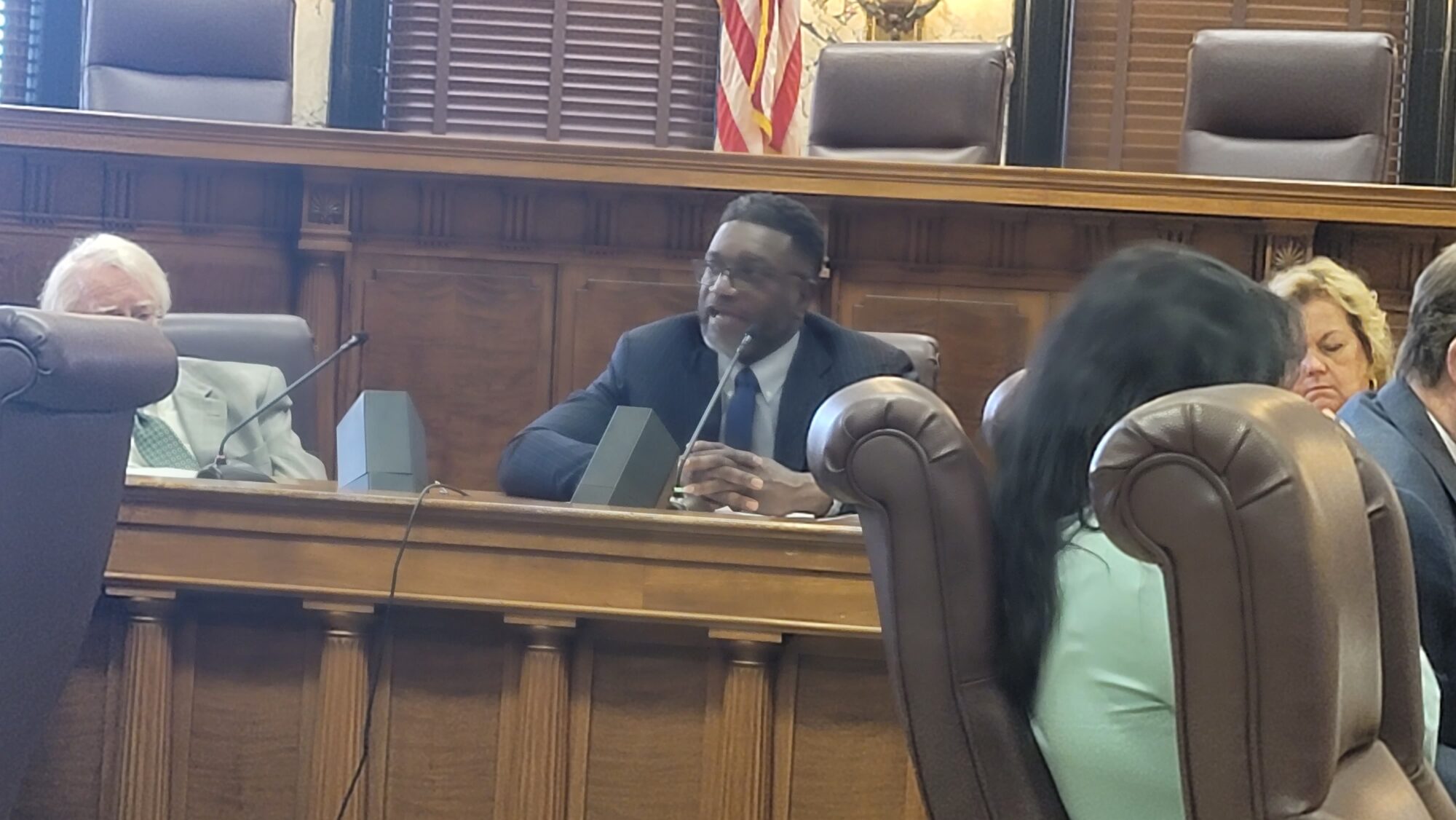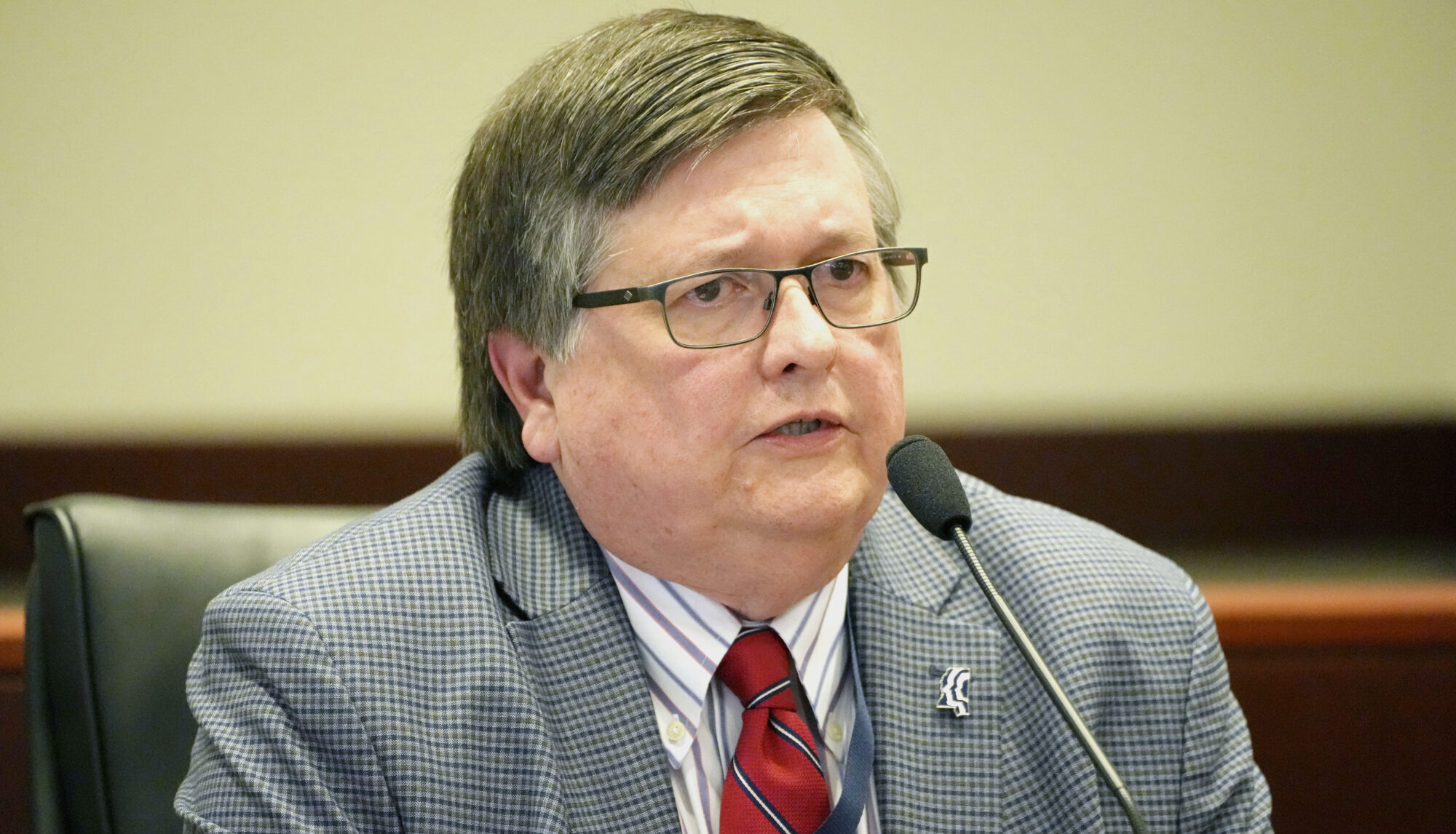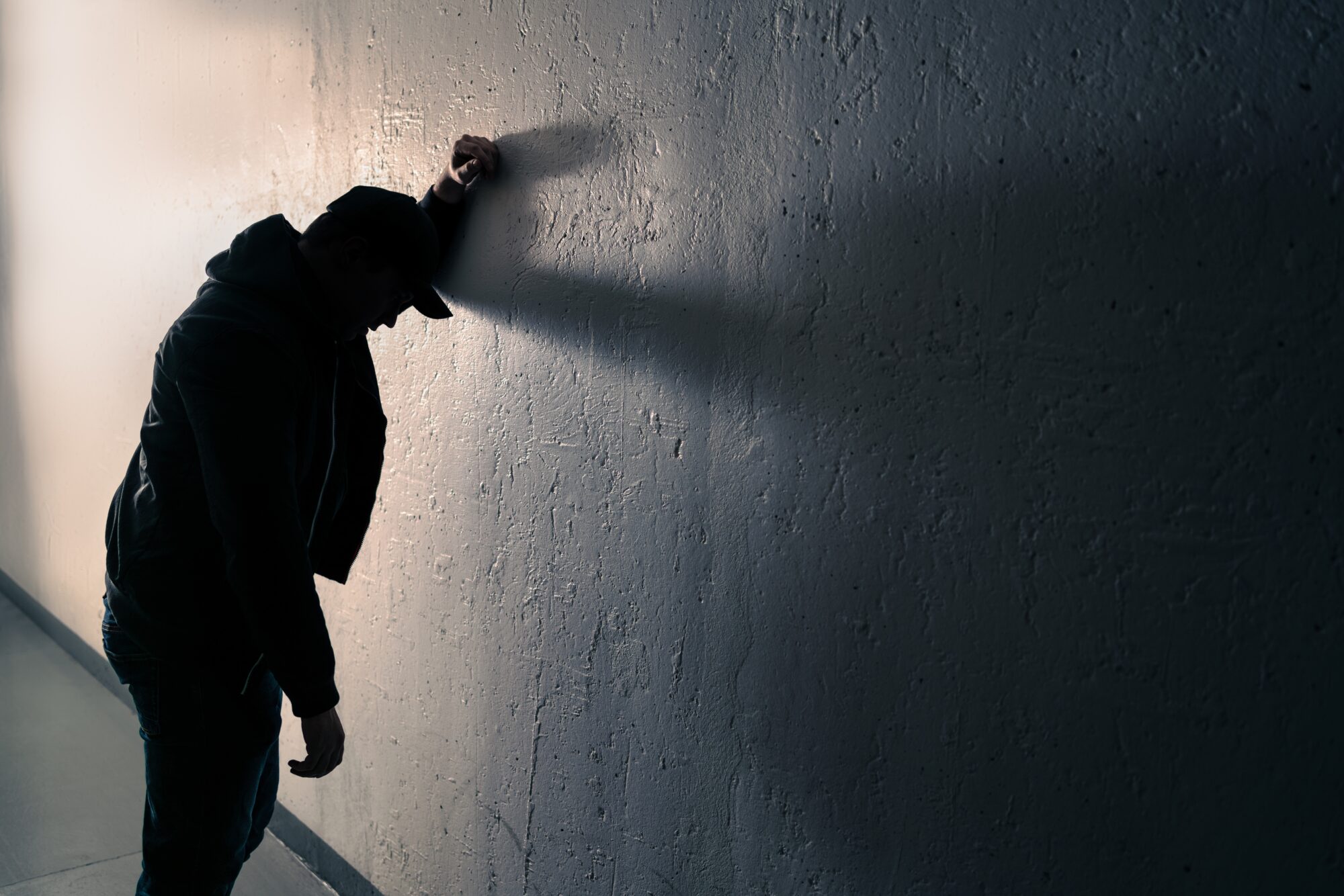
Senate Corrections Committee Chair Juan Barnett discusses SB 2353 during a committee meeting held Tuesday. (Photo by Jeremy Pittari | Magnolia Tribune)
- State Sen. Juan Barnett’s bill to shutter the 120-plus year old state penitentiary must also gain approval from the Senate Appropriations Committee ahead of a floor vote.
Mississippi’s prison system has been in the headlines this week for all of the wrong reasons, but legislators are making moves to try to correct known deficiencies.
In 2022, a report from the U.S. Department of Justice stated conditions at Parchman were allegedly violating the constitutional rights of the inmates held there. Those violations led to acts of violence, inadequate medical and mental care of the inmates, and improper living conditions, the report cited.
This month the DOJ released another report finding that conditions at three other prisons in the state – the Central Mississippi Correctional Facility, South Mississippi Correctional Institution and the Wilkinson County Correctional Facility – are also allegedly violating the constitutional rights of the more than 7,000 total inmates held at those three locations.
To address the issues at Parchman, State Senator Juan Barnett (D) has introduced SB 2353. That bill proposes to close Parchman, the most notorious prison in the state of Mississippi. On Friday, the bill moved out of the Senate’s Corrections Committee which Barnett chairs.
READ MORE: Senate Corrections Chairman Proposes Closure of Parchman Prison
The proposal in the bill is to close a majority of the facilities at Parchman, move most of the population to the Tallahatchie County Correctional Facility at Tutwiler, and leave inmates on death row, the elderly in need of nursing facilities, and those with mental ailments at Parchman. A name change for the facilities that remain open at the state penitentiary is also proposed in the bill.
There is a provision in the legislation to use the savings from the closure of Parchman to increase corrections officer pay in hopes of addressing the ongoing staff shortage.
Before it was approved Friday, the Senate committee heard answers to questions posed during a previous committee meeting held Tuesday. Those questions included the expected cost to the state to hold the inmates at another site under contract with a third party, security systems in place at the Tutwiler prison, the number of employees at Parchman and Tutwiler, and the distance between the two facilities, to name a few.
Senator Barnett said the Tutwiler facility is about 7.9 miles from Parchman, or about a ten-minute ride.
As to whether Tutwiler had similar issues with violence as Parchman, Barnett reported that Tutwiler once had similar issues, but those have since been resolved. He added that the facility is accredited by the American Correctional Association and has passed all recent inspections.
While a formal contract has not been established between the state and CoreCivic, the company that owns the Tutwiler facility, Senator Barnett said the anticipated cost based on verbal discussions would be $14 million per year, which would include maintenance of the facility.
“Which is considerably less than what we are currently spending on the facility that we have at Parchman right now,” Barnett explained.
Attempts were made to get financial information from the Mississippi Department of Corrections concerning how much it would cost the state to continue maintaining the facilities slated to remain open at Parchman, but Barnett said those attempts were unsuccessful as of Friday. He pledged to continue to seek those answers.
Employee numbers at Tutwiler total about 240 out of a maximum of 300. For comparison, Parchman is capable of employing 365, but there are currently 248 vacancies at that facility.
Both facilities pay their corrections staff about the same, in the range of $19 per hour, Senator Barnett said. The difference is that Parchman staff are state employees and as such have state benefits. The aim of the bill is that no current employee at either site lose their job while maintaining their current pay scale, Barnett said during Tuesday’s committee meeting.
State Senator Angela Hill (R) expressed concern during Friday’s meeting about how simply moving inmates from one facility to another would solve the problems seen at Parchman.
“Our problem is staff. Our problem is that the people inside are running the place and tearing the places up. And until we get that solved, I don’t know that the best thing for us to do is just move them out of one facility that they’ve torn up into another facility for them to tear it up if we don’t have the staff and we’re not willing to spend the money to get the staff to keep it under control,” Hill stated.
Senator Barnett’s response was that the facilities at Parchman are in the condition they are because the state failed to make the proper investments in security. His goal with the bill was, and still is, to move those inmates to a facility with the necessary safety mechanisms in place. Barnett chose the Tutwiler prison because it proved those features are in place back in 2022 when 1,000 prisoners were moved there from Parchman in response to the 2022 riots. He said while those prisoners were held at Tutwiler there weren’t any problems due to those safety mechanisms.
As part of the bill, Parchman will be renamed, in part to dispel some of the stigma associated with the 120-plus year old penitentiary. The legislation would rename Parchman as the Northwest Mississippi Correctional Facility, and the facility that will house the elderly and those with mental illnesses will be called Northwest Mississippi Facility for the Treatment and Care of Inmates with Mental Illness.
“Parchman has historically had a bad name for the state of Mississippi and we have to move to try and change some of those things associated with the state of Mississippi that haven’t been good. We would like for the Delta not to just be remembered as a place that has one of the most notorious prisons in the country,” Barnett explained as the reason for the name change.
Friday’s vote to pass the bill out of committee moves it one more step in the process, which includes consideration by the Senate Appropriations Committee before it reaches the Senate floor for full consideration by the chamber.










